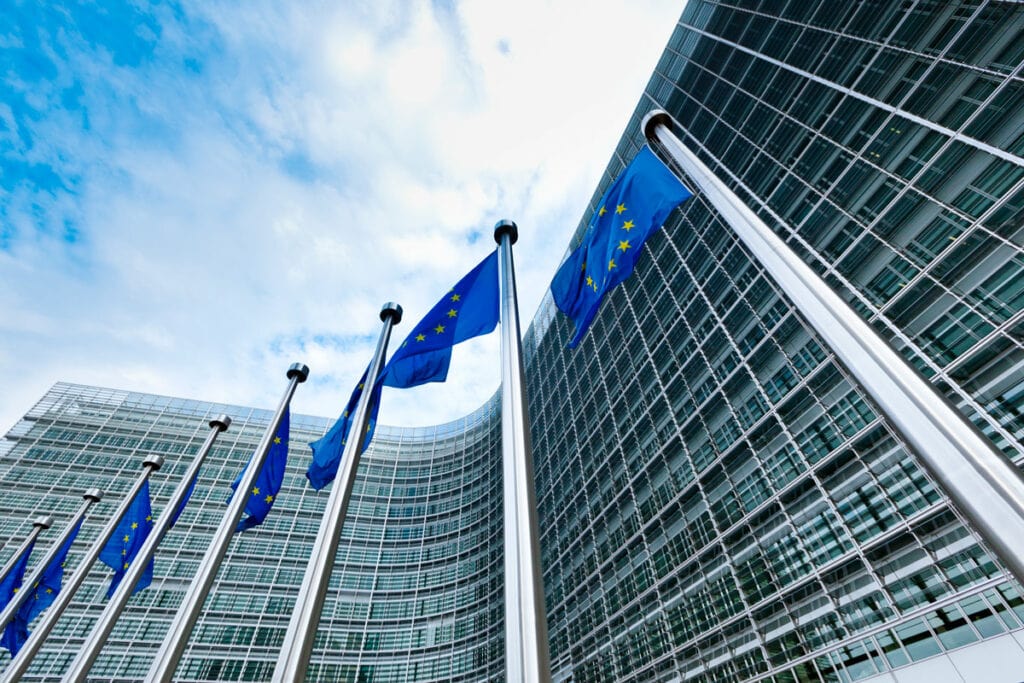Renewable ethanol producers are taking a stand against the European Union’s FuelEU Maritime regulation by challenging it in court. This regulation, which aims to reduce greenhouse gas emissions in the maritime sector, requires ship operators to gradually increase the use of sustainable low-carbon fuels such as ethanol. However, ethanol producers argue that the regulation unfairly favors other alternative fuels and fails to acknowledge the significant environmental benefits of ethanol.
The renewable ethanol industry has a long-standing track record of reducing carbon emissions compared to conventional fossil fuels. Ethanol is produced from renewable sources such as sugarcane, corn, or wheat, and its use in transportation helps to lower greenhouse gas emissions. It is a clean-burning fuel that reduces harmful pollutants and contributes to improved air quality. However, despite these clear advantages, the FuelEU Maritime regulation places ethanol at a disadvantage compared to other alternative fuels.
Ethanol producers argue that the regulation is biased towards liquefied natural gas (LNG) and biofuels such as hydrogen and ammonia, which are still in the early stages of development. While these fuels may have potential, they are not yet widely available or economically viable on a large scale. Ethanol, on the other hand, already has an established market and infrastructure, making it a more practical choice for ship operators looking to reduce their carbon footprint immediately.
One of the main concerns raised by ethanol producers is the lack of recognition of ethanol’s carbon intensity reduction. The FuelEU Maritime regulation classifies alternative fuels based on the lifetime greenhouse gas emissions they produce, but it fails to take into account the entire life cycle of ethanol production. When ethanol is produced from renewable feedstocks, it has a significantly lower carbon footprint compared to conventional fuels. However, the regulation does not distinguish between the different sources of ethanol, thereby undermining its environmental benefits.
By challenging the FuelEU Maritime regulation in court, renewable ethanol producers hope to bring attention to these discrepancies and advocate for a fair and scientifically sound approach to reducing emissions in the maritime sector. They argue that considering the full life cycle of ethanol production will provide a more accurate picture of its environmental impact and encourage its wider adoption.
The outcome of the court challenge could have significant implications for the renewable ethanol industry and the maritime sector as a whole. If the regulation is deemed unfair or scientifically inaccurate, it may pave the way for a more inclusive and balanced approach to reducing emissions. This would not only benefit ethanol producers but also contribute to the overall decarbonization efforts of the shipping industry.
The Potential Benefits of Ethanol in the Maritime Sector
Ethanol has the potential to play a crucial role in reducing greenhouse gas emissions in the maritime sector. Its use as a low-carbon fuel can help ship operators meet their sustainability goals while minimizing their impact on the environment. Furthermore, ethanol production also supports rural economies by providing a market for agricultural products and creating jobs in farming and manufacturing.
By promoting the use of ethanol, the renewable energy sector can benefit from increased demand and investment. This, in turn, would drive further innovation and advancements in ethanol production technologies, resulting in even lower carbon emissions. Ethanol producers are committed to continuously improving their operations and exploring new ways to make ethanol an even more sustainable and efficient fuel option.
Conclusion
In conclusion, renewable ethanol producers are taking the EU’s FuelEU Maritime regulation to court, challenging its unfair treatment of ethanol and calling for a more balanced approach to reducing emissions in the maritime sector. Ethanol has proven environmental benefits and an established market, making it a practical choice for ship operators. By considering the full life cycle of ethanol production, its carbon intensity reduction can be acknowledged, paving the way for a more inclusive and scientifically sound approach to reducing emissions. The outcome of the court challenge has the potential to reshape the renewable energy landscape in the maritime sector and contribute to the overall decarbonization efforts.



